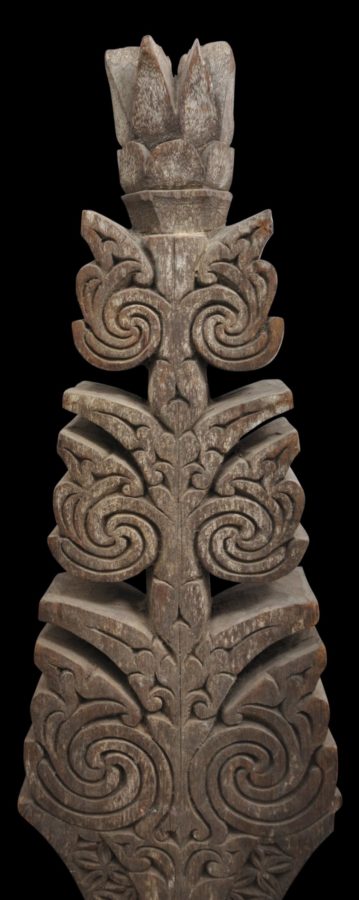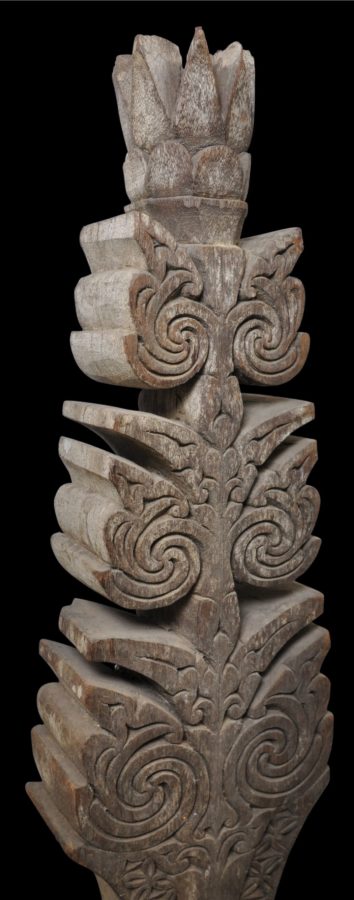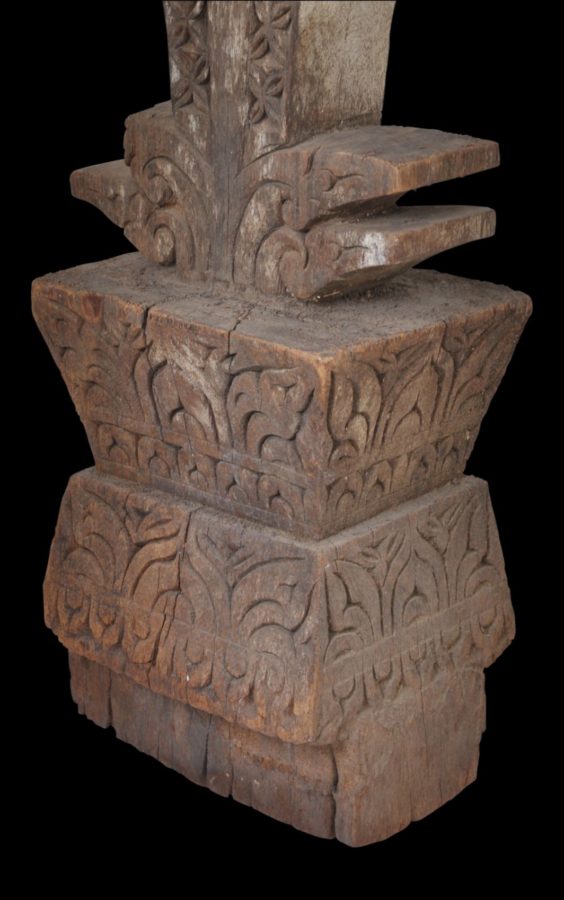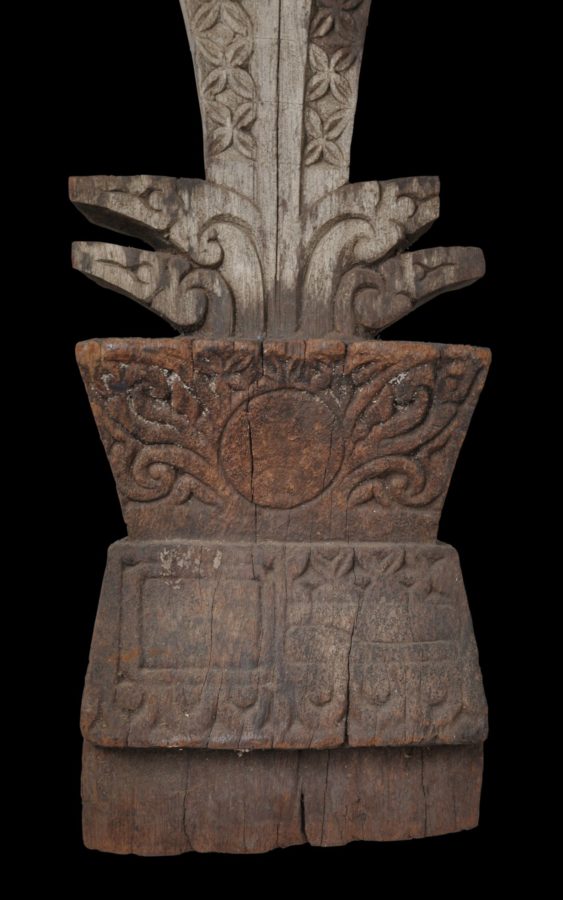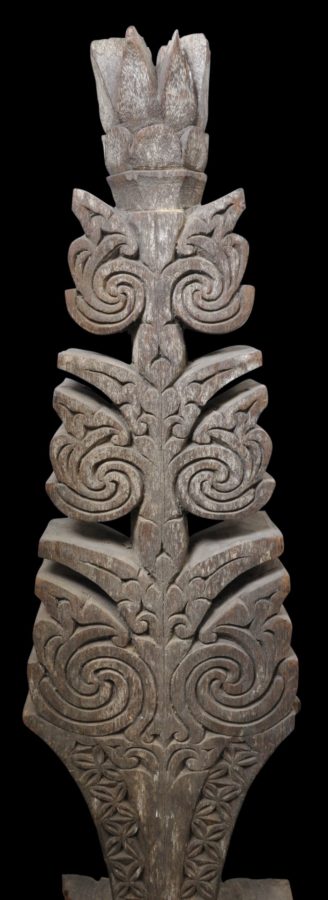This memorial post or grave marker known as a sunduk has been carved from a single piece of ironwood. It is typical in style and form to those found in the Sulu Archipelago, of the southern Philippines. The area is home to the indigenous and strongly Islamic Tausug, Samal, and Badjaw peoples and was under the control of the Islamic Sulu Sultanate. A large number of Moro people from Mindanau also live in the area.
The grave marker is carved to be viewed from all sides. It has been decorated with Malay-inspired traditional carving (ukkil lukis) in a tree-plant (birdo) motif and is topped by a crown-like motif that might also be a stylised lotus bloom (sumping kayapu’).
Most probably this example was for a male; those intended for females tend to be wider, less pole-like and more slab-like.
The marker is weathered and has a fine patina and obvious age. There is one minor loss to one of the lower protuberances.
References
Benitez-Johannot, P. (ed.), Paths of Origins: The Austronesian Heritage in the Collections of the National Museum of the Philippines, the Museum Nasional Indonesia and the Netherlands Rijksmuseum voor Volkenkunde, ArtPostAsia, 2007.
Fernando-Amilbangsa, L., Visual Arts of the Sulu Archipelago, Ateneo de Manila University Press, 2005.





